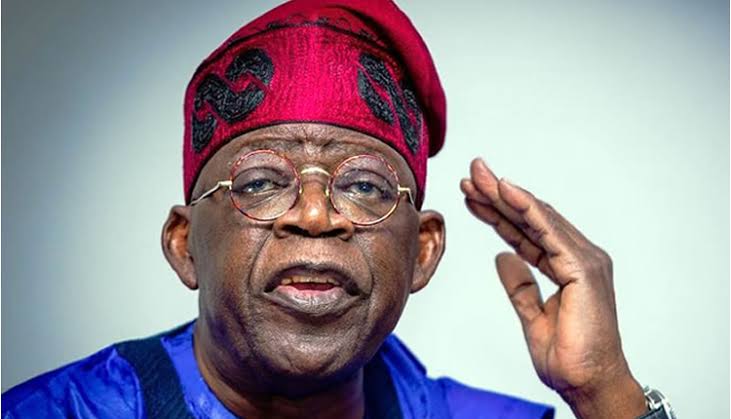The Federal Government says workers will soon start enjoying the new national minimum wage and the consequential adjustments.
Mrs Nkeiruka Onyejeocha, Minister of State for Labour and Employment said this at a Town Hall Engagement with the Organised Labour and Employers meeting on Friday in Abuja.
The News Agency of Nigeria (NAN) reports that the theme of the meeting is: “Imperatives of the Eight-point Agenda of President Bola Tinubu Administration.”
The meeting was organised by the ministry in collaboration with Michael Imoudu National Institute for Labour Studies(MINILS).
It is aimed at promoting the much needed knowledge about the the present administration’s Renewed Hope Agenda with the hope of harnessing the inputs of labour and employers.
According to Onyejeocha, the federal government is meeting with the tripartite committee today, as well as the Head of Civil Service of the Federation.
“The tripartite include the Nigeria Labour Congress (NLC), Trade Union Congress (TUC), and the organised private sector, they are meeting to deliberate on modalities of payment for the consequential adjustments and the minimum wage.
“This meeting may end tomorrow, as we would like to conclude the issues, so that they can start the payment immediately.
“I do not even know why up till now the figures have not been out. We will not take the responsibility for the delay.
This is because the day we passed it, they were supposed to have gone ahead to constitute the committee and then have the figures, but they did not,” she said.
The minister also reaffirmed the federal government’s commitment to addressing socio-economic challenges and evolving solutions to emerging threats to the nation’s wellbeing.
She assured of the government’s determination to tackle head-on the ills that had troubled the nation in recent years.
Onyejeocha lauded the support of President Bola Tinubu’s administration and the efforts to reform the economy, ensure inclusive growth, and strengthen security.
According to her, the federal government is committed to fulfilling its pledge to Nigerians and is working tirelessly to restore Nigeria’s economic pride globally.
She added that government was committed to tackling the nation’s socio-economic challenges head-on and find solutions to emerging threats.
“To achieve this the government is collaborating with policymakers, employers and workers to generate momentum for development, while the ministry is tasked with ensuring decent work, industrial peace, and harmony to drive national growth.
“This administration’s mantra: “Renewed Hope Agenda, unity and progress for all Nigerians,” is predicated on eight points focusing on job creation, education, health, food security, and social investment.
“These are essential pillars of development, a policy implementation that will reform the economy, ensure inclusive growth, and strengthen security for peace and prosperity, which government has vigorously pursued at all levels.
“This remains the pledge we made to all Nigerians, hence government is working round the clock to put Nigeria in its pride of place in the world economy.
“I therefore make no excuses as this government of APC is determined and committed to tackling headlong all socio-economic ills that have troubled our nation,” the minister said.
She explained that the stakeholders’ engagement was to mobilise the workforce to achieve the renewed hope agenda, foster a cooperative labour-government relations, and replace conflict with collaboration.
Prof. George Ogenyi of the Department of Political Science, Nasarawa State University, said the two reasons for the nation’s present state of economic hardship was the removal of fuel subsidy and liberalisation of the Naira.
Ogenyi said that the federal government should find ways of stabilising the pump price of fuel in the country.
“We also need to expand local production in all the sectors, especially in the areas of oil and gas,” he said.
He also called on the Federal Government to tackle the issue of insecurity in the country.
Governor of the Central Bank of Nigeria (CBN), Olayemi Cardoso, noted that every period of adversity always inevitably presents its own unique set of challenges, which are subsequently followed by a return to stability.
Cardoso, who was represented by Mr Omolola Adegbenga, CBN’s Head of Pensions, said the CBN’s activities were solely focused on fostering economic development and advancement.
He noted that while some individuals may posit that certain achievements were unattainable, others may counter that all things were possible.
Cardoso, however, stressed that ‘Hope’ provided the essential foundation for potential achievement, and that concerted efforts would ultimately culminate in exceptional success.
“It is not a coincidence that the president came up with Renewed Hope. I believe that every storm comes with challenges, and after which there will be calm.
“Every activity of the CBN is geared towards economic growth and good governance.When you say nothing is impossible, you are right.When you say nothing is possible, you are also right.But I want to let you know that hope is the foundation of possibility and with collective efforts, we will achieve greatness,” he said.

